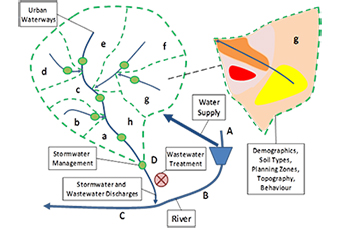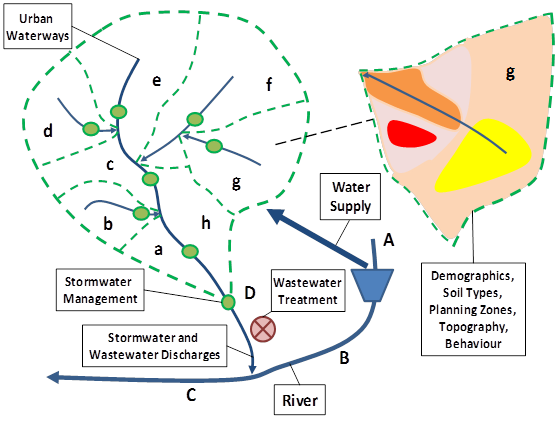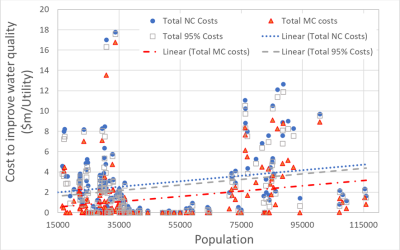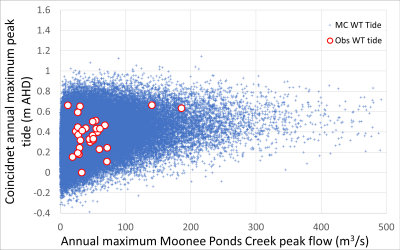Dr Peter Coombes and Dr Michael Barry
Stormwater 2014, 3rd National Conference on Urban Water Management, 13 – 17 October, 2014 – Adelaide, South Australia
This paper discusses key insights from initiation of water cycle reform and policy development for new thinking about water cycle management across many jurisdictions during the last decade. These successful reform programs were activated in the jurisdictions of the New South Wales, Victorian and Australian Capital Territory governments. Systems Frameworks for Big Data analysis are presented as a powerful process for framing evidence based policy from the “bottom up” using all available data and integrating all available spatial and temporal scales of behaviour. The often overlooked (in favour of discussions about harvesting) integration of soil profiles, vegetation, land uses and waterways in the System Framework policy process is explained. It is a key insight that waterways, land uses and stormwater management are inexorably linked to water cycle and town planning systems and are the foundations of successful water cycle management. The value of waterway and stormwater management policies and actions are only fully realised from a systems perspective. The Systems Framework analysis of biophysical systems reveals that the behaviours of water cycle systems are cumulative rather than static. This insight indicates the potential exponential impacts of missed opportunities and a need for ongoing diligence.







